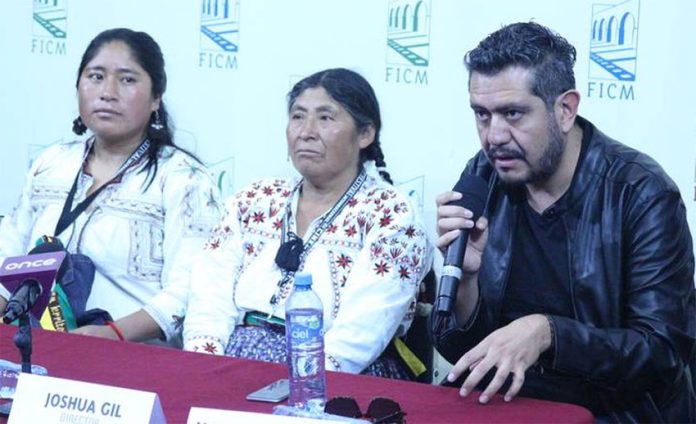The daily lives of rural Mexican farmers who have had to replace corn with marijuana and opium poppies in order to survive form the basis of the film Sanctorum.
The third film by director Joshua Gil closed the Venice Film Festival in September — the first Mexican film that has ever done so — and will compete for best Mexican film this week at the Morelia International Film Festival.
Sanctorum follows the lives of a boy and his mother in a remote mountain village. The latter works in illicit marijuana fields to eke out a living in a community completely devoid of other economic opportunities.
When she doesn’t return home from the fields one day, the boy’s grandmother tells him to go to the forest and pray to the elements for her safe return. As soldiers make their way through the misty forests and the villagers ready their defense, nature unleashes an answer to the boy’s desperate prayers.
Gil thinks of his film as fiction that borders on being a documentary. Parts were filmed in the hazy cloud forests of Oaxaca’s Sierra Mixe, and it features actual members of the Mixe communities rather than professional actors.
“It’s all real! All of it was filmed in real marijuana fields, with real farmers actually harvesting, all that stuff is real, not something made up for the movie. We filmed what they were doing on a daily basis, with their permission, obviously,” said Gil.
Gil began with only 30 pages of script written in Spanish, but after going to Oaxaca and meeting the farmers with whom he chose to work, he decided to expand and adapt it to be primarily in the native Mixe language.
“I decided to change the language of the movie . . . to their language because it felt more powerful to me, more poetic, and it was perfectly suitable,” he said. “When we began filming, the native Mixes felt very comfortable speaking their mother tongue.”
Sanctorum comments on the current political environment of the drug trade in Mexico, albeit indirectly. Gil winks at the hypocrisy of the federal government by allowing the viewer to see how involved the army and other security forces are in the illicit drug trade.
The filmmaker says that despite the talk of legalization of marijuana in recent years, President López Obrador’s administration has not taken a definite stand on whether it wants to do so or drop the idea for good.
He hopes that his film will be a positive voice in the conversation for policy changes that will better the lives of people like those featured in it.
“The new administration still has no clear policy [on legalization] . . . It’s time it spoke on the topic . . . It will have to be a years-long policy in order to see things get better, so we wait for this explosive plan to present the possibility of once again taking up the topic of the criminalization of the Mexican countryside,” he said.
Sources: Reporte Indigo (sp), Milenio (sp), El Universal (sp)
